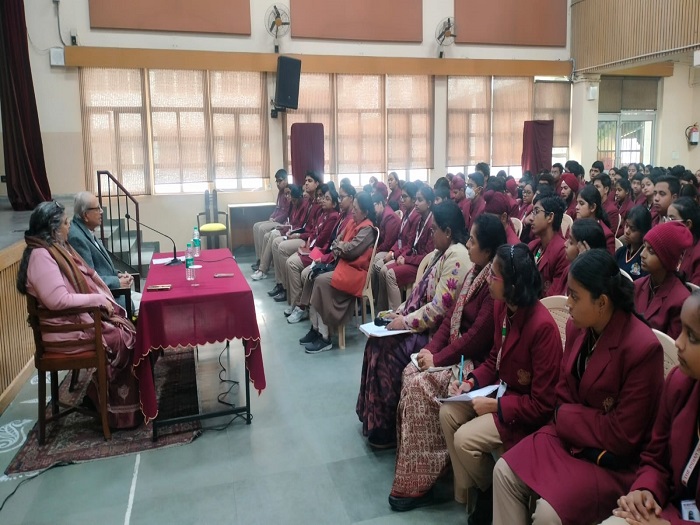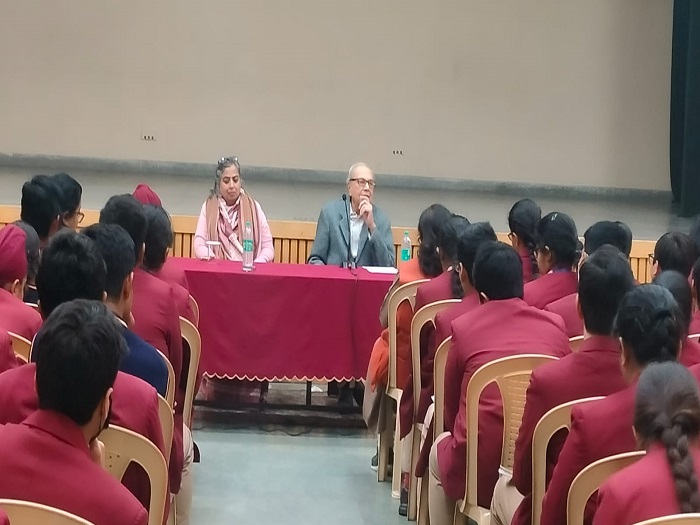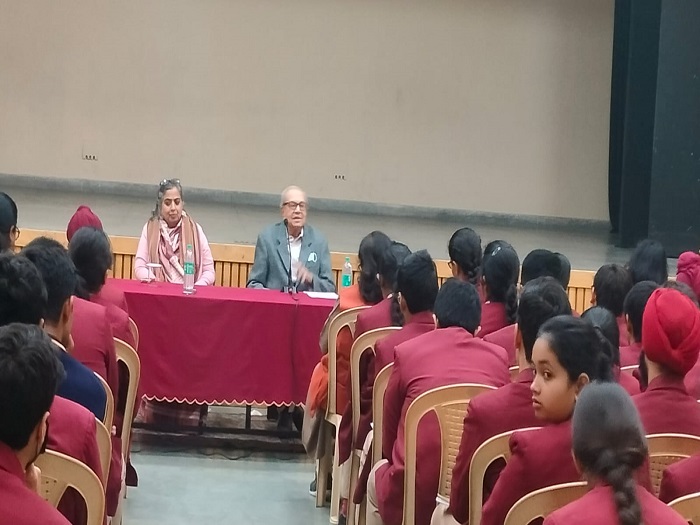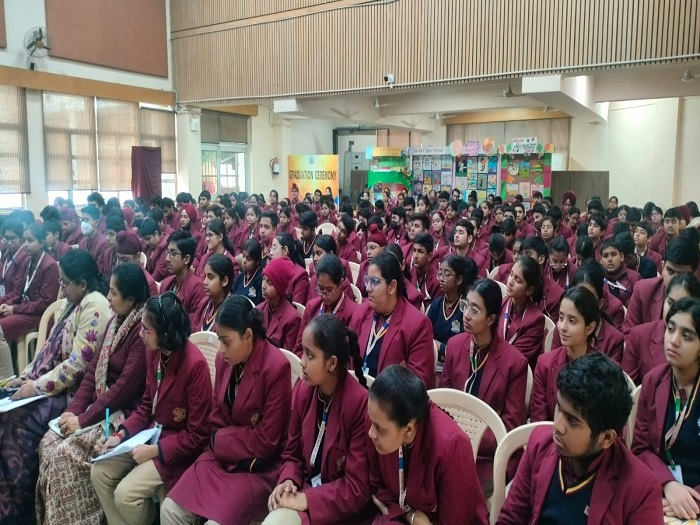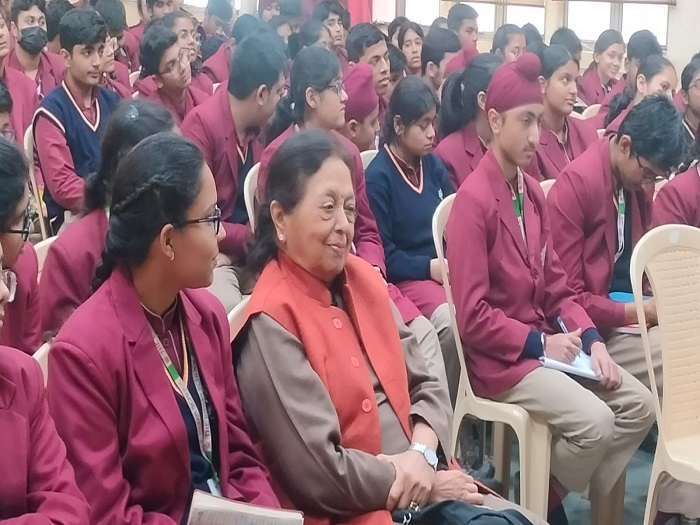Classes 9 and 11 interact with School chairman Mr Goradia on the issue of language in India
On 31 January 2024, students of classes 9 and 11 had the privilege of engaging in a stimulating conversation with our esteemed School chairman, Mr Prafull Goradia. The focal point of the discussion revolved around the post-independence deliberations on India's national language.
Prior to the talk, a succinct overview was provided about the linguistic landscape of India, emphasising the prevalence of Hindi in regions like Uttar Pradesh and Delhi. Notably, it was highlighted that Hindi is the mother tongue of around 44% people in India and around 20% of Indians cannot speak Hindi, but can understand it. The historical backdrop revealed that on 14 September 1949, Hindi was declared the official language of India, not the national language, a distinction with significant implications.
Mr Goradia commenced the discussion by soliciting questions from students, setting the stage for a thoughtful exchange. Questions spanned various concerns, including the proposition of Sanskrit as the national language, the viability of Hindi as a unifying bridge in diverse regions, potential threats to linguistic diversity, and the possibility of altering India's official language in the future.
Recounting an anecdote, Mr Goradia highlighted Jinnah's stance on Urdu as Pakistan's sole national language, underscoring the sensitivity of language as a contentious issue and a symbol of exploitation.
The discourse delved into the historical role of Sanskrit, initially limited to scholars, and the proposition of a common script for India by intellectuals. Mr Goradia suggested that language debates should have been deferred, advocating for a committee to explore inclusive linguistic solutions across the country. Addressing contemporary challenges, the talk acknowledged the closure of vernacular medium schools in favour of English- medium institutions. Mr Goradia emphasised the importance of English for career opportunities, recognising its indispensable role in today's world. Despite enthusiasm for Hindi, it was acknowledged that its promotion had not matched expectations. Mr Goradia concluded by asserting the absence of linguistic superiority, affirming the equal standing of all languages.
In conclusion, the talk provided an invaluable opportunity for every student to voice their thoughts. Anticipation lingers for future talks by Mr Goradia, ensuring continued exploration of vital topics shaping our nation.




